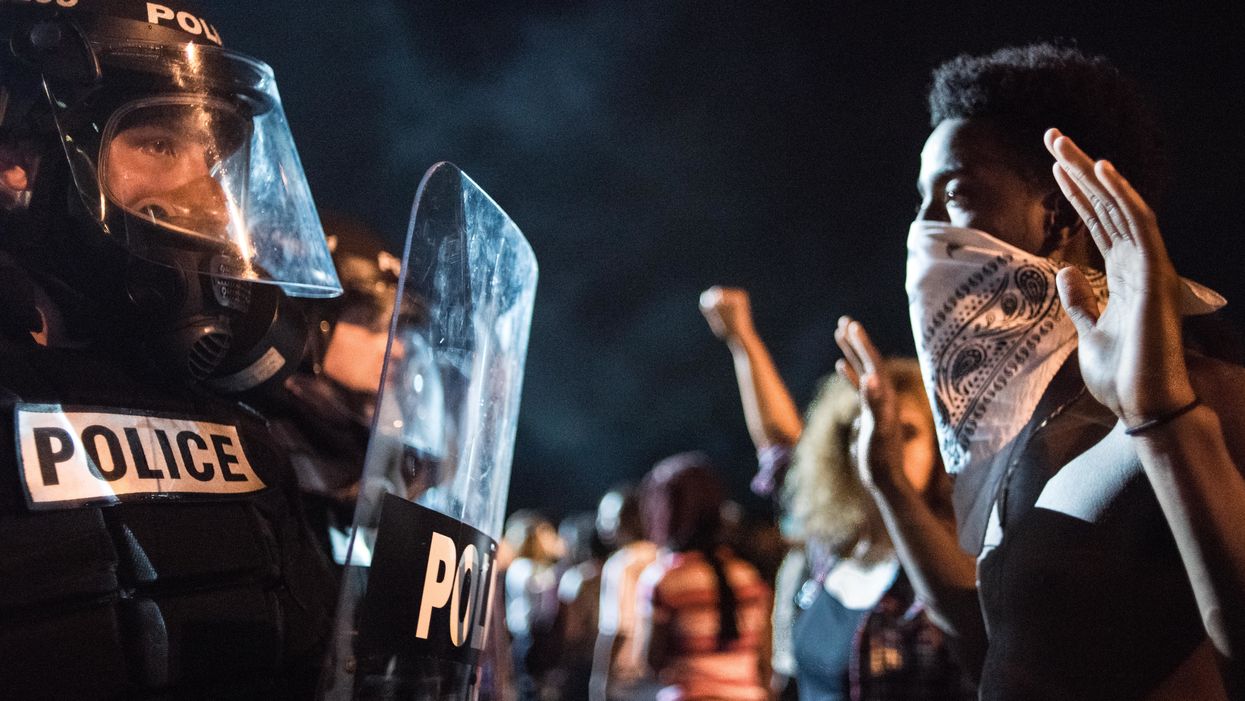
Photo by Sean Rayford/Getty Images

Consider the source
A new study says Black Lives Matter protests — which have drawn thousands and thousands of people across the U.S. — haven't contributed to a spike in confirmed COVID-19 cases.
The research is part of a working paper and has not yet been peer-reviewed.
According to a Monday Newsweek report, there is no evidence to suggest that mass protests caused a coronavirus spike in the country.
The researched, titled "Black Lives Matter Protests, Social Distancing, and COVID-19" reported "strong evidence" that protests may have helped tamp down the spread of coronavirus, "likely because non-protesters chose to leave their homes less amid the demonstrations."
The National Bureau of Economic Research published the study.
The paper reads, "This effect was not fully explained by the imposition of city curfews. Estimated effects were generally larger for persistent protests and those accompanied by media reports of violence.
The study determined there was "no evidence" to support the idea that "urban protests reignited COVID-19 case growth during the more than two and a half weeks following protest onset."
"We conclude that predictions of broad negative public health consequences of Black Lives Matter protests were far too narrowly conceived," the research added.
Newsweek reports that "researchers used anonymous cell phone tracking data from SafeGraph, Inc.," as well as local data from the Centers for Disease Control and Prevention.
"These results make an important contribution not only to the current discussion around policies for controlling the spread of disease, but also to the understanding of human behavior of the general population during periods of civil unrest," the findings noted.
"Our sample includes at least 18 days of data following the early protests that took place in 66 cities (during the first four days following George Floyd's death), 16 days of data following protests in 202 cities, and at least 14 days of data for 240 cities that experienced protests (during the first week following George Floyd's death)," the research added.
Andrew Friedson, assistant professor at the University of Colorado Denver's Department of Economics as well as a study author, told Newsweek that science — and therefore this research — is "never 100 percent conclusive."
"I think that we've put forward a solid piece of evidence on the topic, but there are always improvements that can be made over time," he admitted. "There are a few things that I think are important to point out."
Friedson said it is imperative to note that the results "are for the total population in the location of the protests."
"It is possible that there was more spread of COVID-19 amongst protesters, but that it was washed out by the population-level result which we believe to be driven by the non-protesters," he insisted. "That said, if there was an enormous amount of spread among protesters, we would have been more likely to notice it."